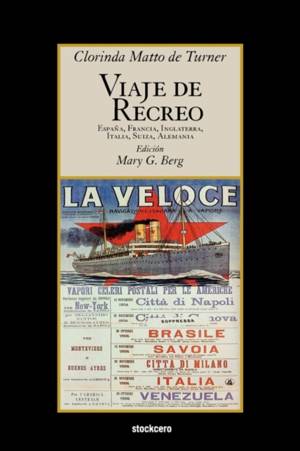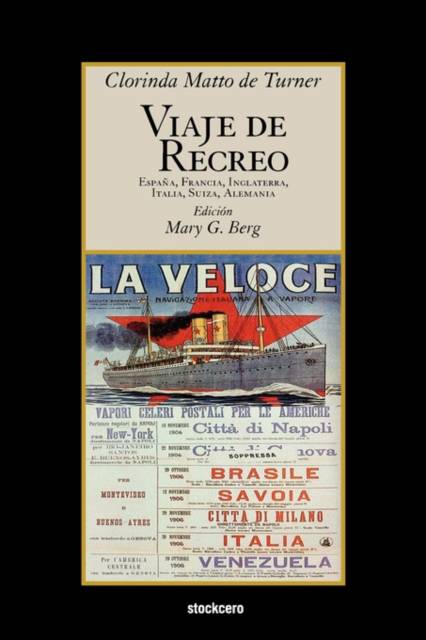
- Afhalen na 1 uur in een winkel met voorraad
- Gratis thuislevering in België vanaf € 30
- Ruim aanbod met 7 miljoen producten
- Afhalen na 1 uur in een winkel met voorraad
- Gratis thuislevering in België vanaf € 30
- Ruim aanbod met 7 miljoen producten
Zoeken
Omschrijving
In 1908, Clorinda Matto de Turner (Peru 1852-Argentina 1909), a lifelong journalist, feminist and writer, traveled to Europe: Viaje de recreo (Pleasure trip) is her account of her vivid impressions. She was particularly interested in the education of women and in women's career opportunities, but she was also fascinated by the cultural differences between the West European countries. Her analysis and descriptions will fascinate anyone interested in the genre of travel accounts, in museum studies, in feminist history, or, of course, in Matto's life and writings. In Viaje de recreo, Matto analyzes the cultural displays of Spain, France, England, and Italy in great detail, and comments on Switzerland and Germany as well. She is particularly intrigued by museums, art, architecture, and cultural productions. She speculates at length about the differences between the European countries. Viaje de recreo is both a perceptive travel memoir and a lively autobiography of personal reflections. Matto was profoundly moved by English honesty and honor, disappointed that French feminism did not meet her expectations, impressed by Spanish women writers and activists, and deeply impressed by the beauties of Italy. She frequently compares Roman ruins with Incan heritage in Peru, lamenting their replacement by less tolerant societies. She is impressed by new technologies - cars, trams, trains, electrical devices, escalators, factories - but even more fascinated by women's lives and presence in each country, and by the ways each country has preserved and displayed its cultural history. This new edition includes extensive footnotes as well as an introduction to the book and to its author, with bibliography. The editor, Mary G. Berg, is author of a dozen articles about Clorinda Matto de Turner, and has edited Matto's novels Indole and Herencia (Stockcero). She is a Resident Scholar at Brandeis University's Women's Studies Research Center, and is finishing a biography of Matto.
Specificaties
Betrokkenen
- Auteur(s):
- Uitgeverij:
Inhoud
- Aantal bladzijden:
- 246
- Taal:
- Spaans
Eigenschappen
- Productcode (EAN):
- 9781934768358
- Verschijningsdatum:
- 20/09/2010
- Uitvoering:
- Paperback
- Formaat:
- Trade paperback (VS)
- Afmetingen:
- 152 mm x 229 mm
- Gewicht:
- 367 g

Alleen bij Standaard Boekhandel
+ 101 punten op je klantenkaart van Standaard Boekhandel
Beoordelingen
We publiceren alleen reviews die voldoen aan de voorwaarden voor reviews. Bekijk onze voorwaarden voor reviews.








